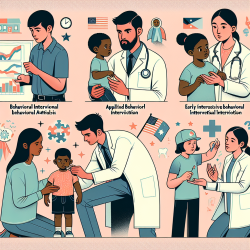Introduction
The COVID-19 pandemic has had a profound impact on various sectors, including long-term care facilities. A recent study titled #Morethanavisitor: Experiences of COVID-19 visitor restrictions in Canadian long-term care facilities explores the effects of visitor restrictions on residents, families, and staff. This research offers valuable insights for speech-language pathologists (SLPs) working with children, emphasizing the importance of family involvement in care.
Key Findings
The study highlights several critical outcomes of visitor restrictions:
- Residents experienced increased isolation, leading to adverse effects such as malnutrition and dehydration.
- Family members reported long-term emotional suffering due to their inability to provide essential care and support.
- Staff faced burnout and increased stress levels, impacting their ability to deliver quality care.
- Structural and policy issues within long-term care facilities were exacerbated by the pandemic.
Implications for Speech-Language Pathologists
While the study focuses on long-term care facilities, the findings have broader implications for SLPs working with children in various settings. Here are some key takeaways:
- Family Involvement is Crucial: The study underscores the importance of involving family members in care decisions. SLPs should encourage family participation in therapy sessions and decision-making processes to enhance outcomes for children.
- Addressing Isolation: Just as isolation negatively impacted long-term care residents, children in therapy can also suffer from a lack of social interaction. SLPs should incorporate social engagement strategies into therapy plans to mitigate these effects.
- Supporting Caregivers: The burnout experienced by long-term care staff highlights the need for support systems. SLPs should advocate for resources and support for caregivers, ensuring they can provide the best care possible.
- Policy Advocacy: The study reveals structural issues within care facilities. SLPs can use their expertise to advocate for policy changes that prioritize family involvement and address systemic challenges.
Encouraging Further Research
The study by Thirsk et al. is a valuable resource for understanding the impact of visitor restrictions. However, more research is needed to explore these effects in different contexts, including pediatric care. SLPs are encouraged to engage in or support research initiatives that investigate the role of family involvement in therapy outcomes for children.
Conclusion
The COVID-19 pandemic has highlighted the critical role of family involvement in care settings. For speech-language pathologists, integrating these insights into practice can enhance therapy outcomes for children. By fostering family engagement, addressing isolation, supporting caregivers, and advocating for policy changes, SLPs can contribute to better outcomes for their clients.
To read the original research paper, please follow this link: #Morethanavisitor: Experiences of COVID-19 visitor restrictions in Canadian long-term care facilities.










